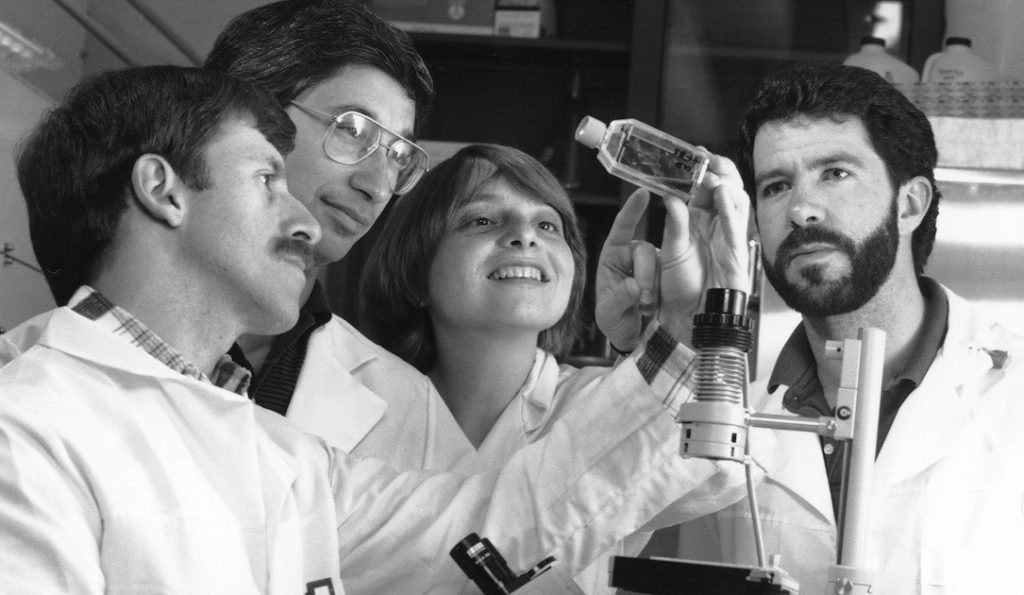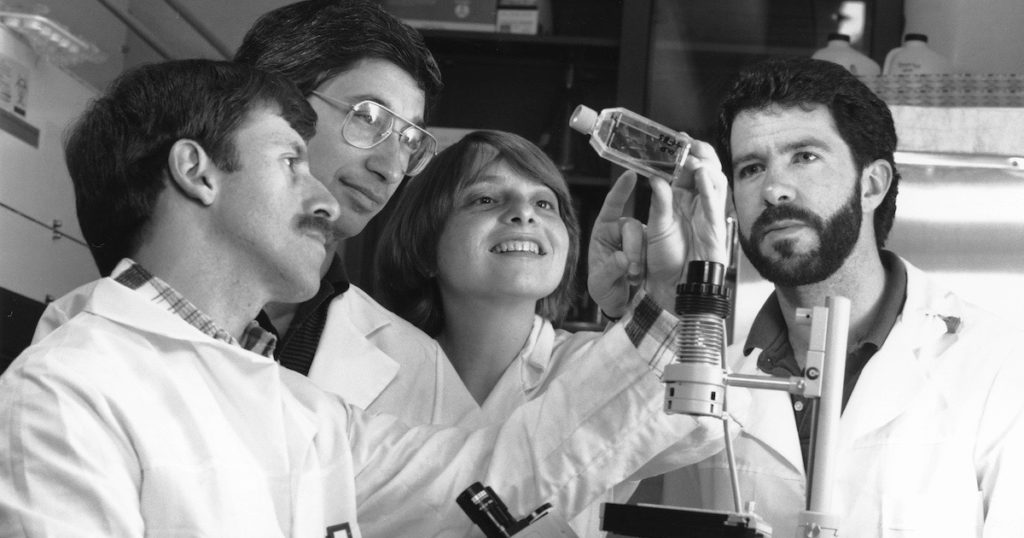 Intelligent Design
Intelligent Design
 Medicine
Medicine
What Scientists Know


Our scientific elites insist that the “scientific consensus” be accepted without question, and that to raise doubts (about climate change, about the mind-body relationship, you name it) is “science-denial” or “anti-intellectualism.”
On Darwinian evolution, questioning the consensus now merits suppression by the government. As readers of Evolution News are likely aware, the science journal BioEssays recently demanded censorship of intelligent design, mandated by the government if Internet search engines resist. The author of the article, biologist Dave Speijer, singled out Evolution News for this treatment.
After the BioEssays article was published, biologist Jonathan Wells recounted a relevant story:
Some years ago I submitted an article on cell biology to a prominent British journal. After making some recommended corrections my article passed peer review, and the editor emailed to tell me he wanted to publish it. He had just one final question: Was I “the Jonathan Wells of intelligent design fame?” (His words exactly.) Afterwards he sent the article to yet another reader, whose “review” didn’t deal with the contents of my article at all but sounded like a rant from [the Darwinist website] Panda’s Thumb. The editor then rejected my article.
The journal was BioEssays.
Well, scientists really know what they’re doing and shouldn’t be questioned. Isn’t that right?
“Do Face Masks Work?”
Sometimes a couple of points in public discussion intersect in a way that takes your breath away, and point to a much deeper problem. Here’s an example, one from Yale neuroscientist Steven Novella and another from Fox News.
The question of whether or not wearing a facemask “works” is incredibly complicated. It may not seem so at first, but let me list some of the specific questions contained in that broad question. We need to consider different kinds of masks — cloth, surgical, N95. We need to consider who is wearing the mask …
Dr. Novella discusses several variables that we should examine in determining mask effectiveness, but this question is hardly “incredibly complicated.” We probe the Big Bang, we land spacecraft on asteroids, we decode genomes, and we explore the inner workings of subatomic particles.
Surely we can compare different kinds of face masks. Sounds like a nice 7th-grade science project.
Novella, after reviewing the scientific literature on this (literally) life-and-death issue, concludes:
… [s]o wear the mask properly, but act as if the mask does not work.
*Sigh*
COVID-19’s $100 Billion Question
Here’s a second news report, that, in light of Novella’s post, ought to give us pause:
Numbers from a paper in the academic journal “Health Security” released in late 2018 indicate that the government spent between $10 billion and $12 billion each year from 2010 to 2018 across several agencies on programs that contribute to “biosecurity,” the management of “pandemic influenza and emerging infectious diseases,” and “multiple-hazard and general preparedness” programs that assist in readiness for and response to different types of health threats, including diseases like the coronavirus.
Wrap your mind around that: after spending $100 billion on pandemic readiness over the past decade, scientists still don’t know if face masks work.
That’s not the only thing they don’t know. The COVID crisis has been remarkable for the number of hairpin turns taken by scientific opinion. Early on, public health experts warned of infection through contact with surfaces. Now that advice is abruptly reversed: “Virus ‘does not spread easily’ from contaminated surfaces or animals, revised CDC website states” (Washington Post).
Goodness gracious. What scientists don’t know is astonishing. Even I’m amazed.
There’s a real chance that this virus arose due to the incompetence of scientists who handled it in the Wuhan lab. It is clear that scientists in China and at the World Health Organization misrepresented the facts about the pandemic and covered up the seriousness of the outbreak for months. Pandemic models have proved worse than worthless, and scientists in the Centers for Disease Control were and are manifestly unprepared and at wit’s end in dealing with the virus once it reached our shores. Even the most basic questions — for instance, how much social distancing and economic ruin are called for to save how many lives, etc. — remain unanswered, even after spending $100 billion in the past decade on pandemic research.
A Needed Accounting
Rather than handing over the censors’s power to consensus enforcers, there needs to be an accounting for the manifest incompetence of the scientific profession. That is across a broad spectrum of issues. The COVID-19 fiasco is one illustration, the one at the forefront of most people’s minds. But it mustn’t end there.
The same scientific profession that doesn’t know if face masks work, or whether the virus is communicated by surfaces, doesn’t know if materialism explains the mind or if undirected natural selection explains life, either.
Scientists don’t really know any more about the origin of life or about the evolution of biological complexity or about how the brain gives rise to the mind than they know about the effectiveness of face masks. The only difference is that scientists can’t fake knowledge about face masks any longer.
Photo source: National Institutes of Health, via Wikimedia Commons.
